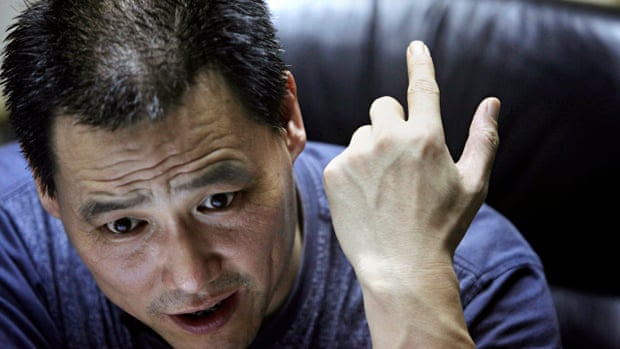It’s been since May of last year, when a lawyer and emblematic figure in the fight against the laws in China, Pu Zhiqiang was detained. So it’s no surprise that he no longer expects a decision by the prosecutor to determine a formal sentencing. He knows that either he’ll be judged, or investigators dig up any additional evidence needed in his prosecution case. The investigation is centered around three charges, “inciting subversion of state power,” “incitement to racial hatred and separatism,” and “provoking quarrels and troubles.” All of these combined can land Zhiqiang with up to twenty years in a prison. Most readers here won’t think that the punishment really fits the crime, but that’s not a concern they’re all too worried about.
One might be asking herself, what caused such complicated charges to amass against just one person? Well, the answer might shock, considering that it was just 28 messages on a Weibo account posted between 2011 and 2014. Weibo is the Chinese equivalent of Twitter. “For three of the charges, the only evidence presented is these messages,” confirmed his lawyer, Zhang Baojun, a lawyer and member of Pu’s defense.
The argument that his lawyers have put forth is that Pu admits to writing the messages. What Pu won’t admit to is that it constitutes as a crime. They’ve maintained this position since the beginning. The lawyers have not but to defend the freedom of expression, as is indicated and clearly stipulated in the constitution. Liu Xiaobo, a Nobel Peace Prize winner sentenced to 11 years in prison back in 2009 was considered in several of these messages. In this digitally connected world, the only real difference between texts, or emails, and tweets is that tweets are public for anyone to see, so long as the account is public (as most are). The biggest problem is the government doesn’t seem like they can make up their mind with the “proper” punishment or time to sentence. Of course, no amount of time is justifiable, keeping freedom of expression in mind, and there is little cause for optimism.
Through the various methods of torture, including the physical and the mental, 74 volumes, each 100 to 150 pages, have been compiled by Zhang. This is just after three months of interrogation. Pu is nothing if not resilient and many of these sessions go on for grueling hours on end. There was a letter from December written to Chinese President Xi Jinping, where Pu’s wife had complained of the “physical and mental torture” inflicted on her husband. Pu has diabetes, not helping his case. 
Tweets have already been recorded and logged by police to feed the accusations and see reactions and comments, sometimes being very sarcastic, about Pu Zhiqiang. This feeds straight into news events and debates that continue to stir things up on blogs and op-ed sites. In June of 2013, the hero model of Maoism, Lei Feng, said that this was the biggest lie in the last sixty years.” In another tweet dating back to January of 2013, the lawyer scoffs notorious for their incompetence two deputies to the People’s Assembly. Major General Mao Xinyu, the grand-son of Mao and Shen Jilan, an MP for 84 years has never voted against a bill since 1954.
Pu’s three most recent tweets date back to 2014 and talk about the unrest in the Uighur Autonomous Region of Xinjiang, the lawyers calling for investigation into the situation in the area shaken by regular terrorist attacks and telling the Chinese “not to behave as conquerors and plunderers. ” Pu’s arguments aren’t without merit, and this is proven by the reaction. The message got through and stung the Chinese regime. Is it paranoia that makes them hold to zero tolerance policies to critical voices? Maybe he was out to give the regime a hard time through tweets, despite any consequence. But there were all kinds of rumors circulated. Maybe that’s just the price, when locked in a country with this kind of reactionary defense.
Illegally obtaining personal information concerning the steps taken by the lawyer on behalf of Chinese journalists on current issues resulted in a fourth charge to Pu’s case. Pu Zhiqiang was arrested on May 5th, 2014 after attending a private seminar to commemorate the Tiananmen Square massacre in June 1989. He was known for defending Ai Weiwei, a dissident artist, but also the lesser-known victims of abuse by the State Chinese policeman and had close relations with parts of the Chinese “progressive” press. Pu received a relatively high media visibility in China, despite the attempts at censorship. Is he beating the system?
